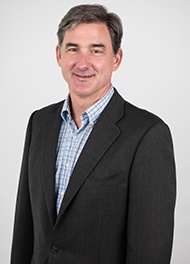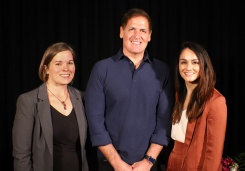The research of our faculty and staff have been impactful in many areas of health policy and public health, in the halls of Congress and the White House to ministries of health abroad, and the medicine cabinets of everyday households.
Envision Cayce: Redevelopment Impact on Community Health
Beginning in 2024, the faculty and staff in the Department of Health Policy at VUMC and Meharry Medical College began a community-based research project aiming to survey residents of the mixed-income Envision Cayce redevelopment project in East Nashville and the impact of the area's revitalization on well-being and social lives of families living in Cayce.
Stevenson's Collaboration with National Academies Aims to Bring Needed Reform to Nursing Home Care
Nursing homes and play a unique dual role in the long-term care continuum, serving as a place where people receive needed health care and a place they call home. Ineffective responses to the complex challenges of nursing home care have resulted in a system that often fails to ensure the well-being and safety of nursing home residents.
William Schaffner Turns Over EIP Program After Decades of Leadership
William Schaffner, MD, professor of Health Policy and primary investigator for the Tennessee Emerging Infections Program (EIP) began turning over his responsibilities to H. Keipp Talbot, MD, in late 2022.Dr. Schaffner has been with VUMC since the 1960s, effectively making him one of the longest tenured physicians ever at VUMC. He has been the primary investigator for the multi-state EIP for more than 10 years. Under his leadership, the program has grown in scope, staffing and focus, adding disease surveillance activities.
How Research Informed Major Policy Change
(Originally published in March 2023.)For more than 10 years, Stacie Dusetzina, PhD, Ingram Professor of Cancer Research and Professor of Health Policy, and fellow researchers analyzed the financial impact of prescription drugs used by millions of Americans enrolled in Medicare insurance plans. In many cases, drugs cost so much for some patients, they are left in financial ruin for health conditions they have developed at no fault of their own, like cancer or diabetes.
Vanderbilt’s Center for Health Care Modeling Growing Global Health Research
Posted in
For years, Professor John Graves, PhD, has been studying health care markets and the policies that influence them. Using statistical models and data from multiple sources, Graves develops models to inform decision-makers and policymakers.Graves heads a small group of faculty in the department that aims to answer a simple question asked in dozens of different contexts within health care: Is it worth it? For example, is what we spend on a particular intervention returning the results we want in terms of lives saved or expensive care reduced or averted?




